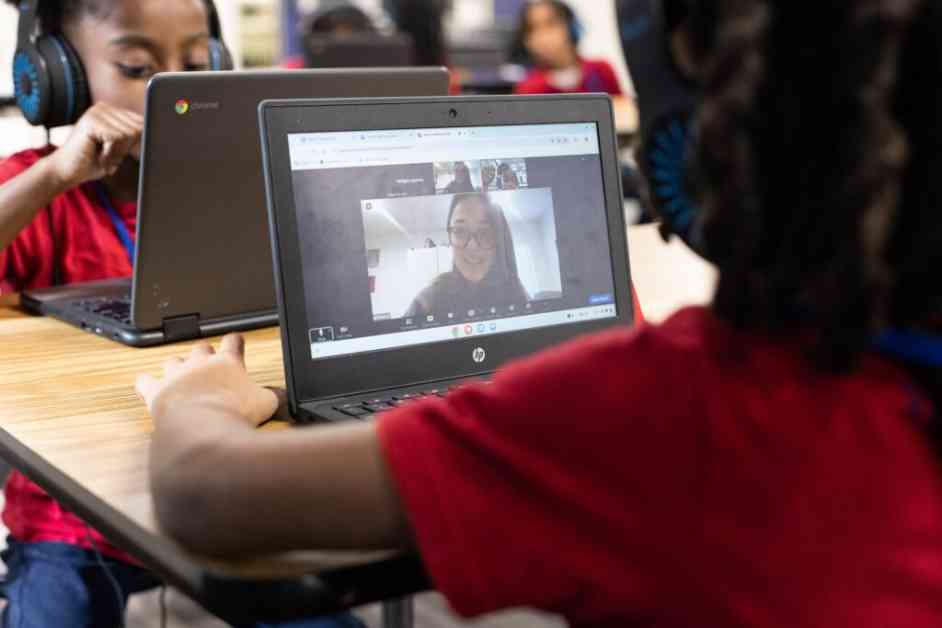Closing the Diversity Gap: How Tutors Can Help California Students
As the school year kicks off in California, there is reason to be optimistic. The state ended the previous academic year with an increase in student attendance rates, signaling a positive trend from the historic lows experienced during the pandemic. While having students back in classrooms is a cause for celebration, the pressing issue of teacher shortages remains a significant challenge that must be addressed.
California currently ranks 47th in the country for student-teacher ratio, highlighting the urgent need for more educators in our schools. While the state government is making investments in school staffing, there are additional steps that can be taken to ensure that students receive the high-quality education they deserve. Time is of the essence, and action must be taken swiftly to close the diversity gap in our education system.
One effective initiative that should be implemented without delay is high-impact tutoring. This involves providing one-on-one or small group tutoring sessions that meet at least 30 minutes, three or more times a week. High-dosage tutoring has been proven to be one of the most effective ways to help students make academic progress, yet it is a resource that remains underutilized. Research from Stanford University has demonstrated the many positive effects of tutoring, including increased reading and math scores, improved attendance, and a sense of belonging among students.
Teach For America’s tutoring program, the Ignite Fellowship, is a prime example of how tutoring can make a difference in students’ lives. The program connects tutors with students virtually during the school day, providing personalized instruction and support. With the guidance of experienced educators, Ignite fellows have helped 71% of the 3,500 students they work with across the country meet their semester-long reading and math goals.
Beyond its impact on student achievement, tutoring also serves as a pipeline to teaching. Many college students use tutoring as a stepping stone to a career in education, allowing them to gain valuable experience and insight into the teaching profession. AmeriCorps, a program that employs young people as tutors, has found that over half of its tutors aspire to pursue a career in education after their service. By providing aspiring teachers with an opportunity to test the waters through tutoring, we can improve teacher recruitment and retention rates, ultimately benefiting students in the long run.
Tutors also play a crucial role in easing the burden on teachers. By working with small groups or individual students, tutors can address specific learning gaps and provide personalized support that lead teachers may not always have the capacity to offer. This enables students to build relationships with multiple educators and mentors, ensuring that their diverse needs are met. In a profession where teachers often wish they could clone themselves to reach more students, tutors serve as valuable allies in the quest for personalized education.
One of the key benefits of prioritizing tutoring is its potential to increase diversity among educators. Research has shown that students benefit from having teachers who reflect their backgrounds and experiences. In California, where 77% of the K-12 population is composed of students of color, it is crucial that we recruit and retain teachers of color to serve as role models for our students. Programs like the Ignite Fellowship are working to bring more diverse and locally rooted teachers into classrooms, creating a more inclusive and representative learning environment for all students.
As we navigate the challenges of the current school year, it is essential that we prioritize investments in tutoring as a means to address teacher shortages and promote diversity in education. By providing students with access to high-quality tutors, we can not only improve academic outcomes but also create a pipeline of diverse and dedicated educators for the future. The time to act is now, and the benefits are clear – let’s work together to close the diversity gap in California schools.
Lida Jennings, the executive director of Teach For America Los Angeles and San Diego, emphasizes the importance of investing in tutoring to support students and teachers alike. With a focus on diversity and quality education, tutoring programs like the Ignite Fellowship offer a promising solution to the challenges facing California’s education system. Let’s seize this opportunity to make a difference in the lives of our students and shape a brighter future for education in our state.




















